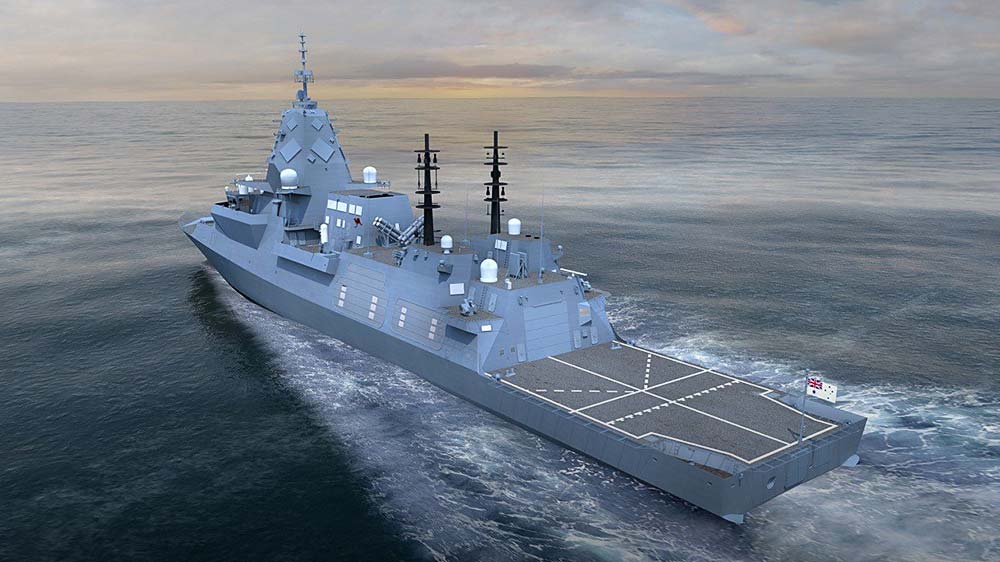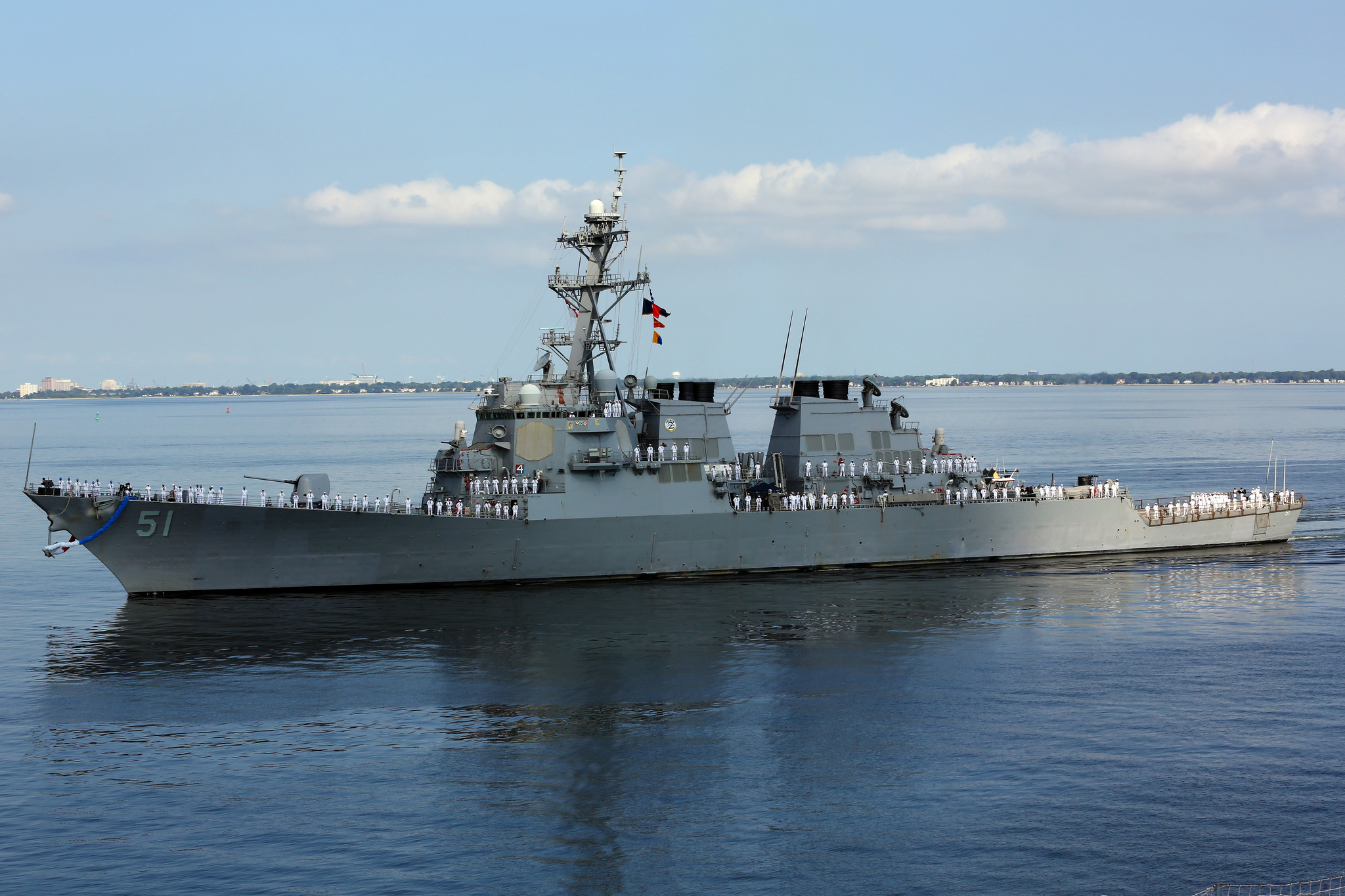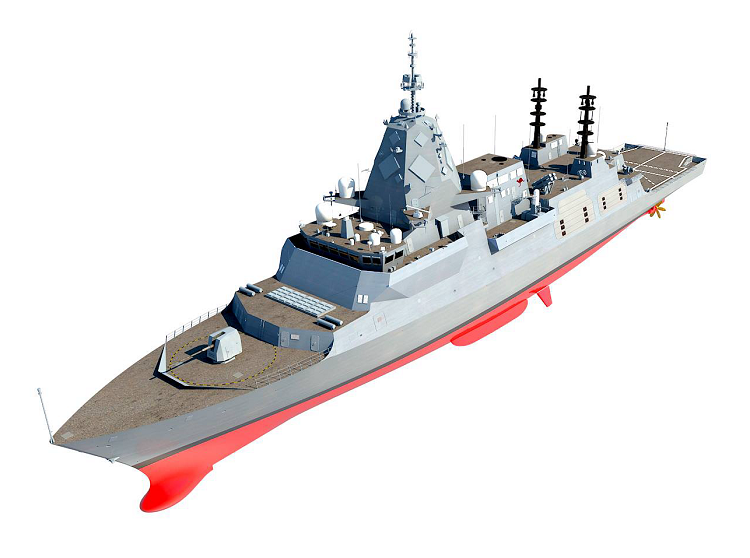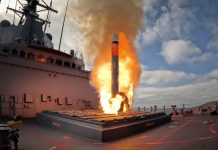Australia’s ambitious $45 billion ‘future frigate program’ for anti-submarine warfare has long been dogged by controversies. While the government aggressively defends the project, a spate of criticism in recent times from the military and bureaucrats has complicated matters.
Absolute Stunning! Awe-Inspiring Image Of V-22 Osprey Hovering Over A Nuclear Submarine Takes Internet By Storm
In what could come as an embarrassment, a former chief of the Royal Australian Navy has suggested that Australia’s controversial $45 billion future frigate program should be canceled because the British-designed warships, to be called ‘Hunter-Type’ will not be “powerful enough.
The Hunter-Type is known to be based on UK’s Type-26 class destroyer.
In a recent report, retired Vice Admiral David Shackleton recommends that Canberra should instead negotiate with the US to build Arleigh Burke-class destroyers locally or commission the construction of more Hobart-class destroyers if that alternative is not viable.
The Hobart-class destroyers were developed as air warfare destroyers. Even though producing more vessels of the same class has been a matter of discourse for a while, the Future Frigate Program’s Hunter-Class frigate has shadowed all other potential projects in recent years.

These recommendations from the former chief come at a time when the project remains marred with controversies. Earlier this year, Australia’s top bureaucrats had said that the Navy’s $45 billion future frigate program could be the Defense Department’s watch-list for ailing programs if it suffers from any further delay.
The Future Frigate Program began in 2009 when the Kevin Rudd government announced its intention to “acquire a fleet of eight new Future Frigates, which will be larger than the Anzac-class vessels” with a focus on anti-submarine warfare in the Defense White Paper.
The Anzac class frigates were commissioned in the late 90s and have undergone mid-life upgrades.
UK’s BAE Systems was chosen over competing bidders from Spain and Italy four years ago to build nine new anti-submarine warfare (ASW) frigates. The Hunter-class vessels were supposed to be built in Adelaide in late 2022, but that date has been pushed back by at least 18 months.

“The Hunter frigate program in its current form should be stopped and redirected,” Vice Admiral Shackleton wrote in a report published by the Australian Strategic Policy Institute (ASPI).
“The Hunters aren’t powerful enough ships and it won’t give the government a range of military options it could need for managing a conflict.”
‘Top Secret’ Info On British Eurofighter Typhoons Exposed As US-Based Agent Shares Details On Public Domain
The Future Frigate Program is one of the biggest milestones in the defense relationship between the UK and Australia, both of which are also collaborating under the AUKUS agreement along with the US to help Canberra build its nuclear submarine. However, the joint project has hit rough waters yet again with no substantial progress insight.
Hunter Frigate Hits Rough Waters
The Hunter-class frigate was to be an Australian variant of the Royal Navy’s Type 26 frigate, intended to begin service in the mid-2020s. The vessel was expected to have a full load displacement of 8,800 tons length of 150 meters.
The ship is envisioned to have a full complement of 180 crew members with a sailing speed of more than 27 knots.
According to the recently published report, the cost of the future frigate program was initially estimated to be $30 billion in 2016, but grew to $45.6 billion by 2021, with the vessel’s displacement growing from 8,800 to over 10,000 tons.
Vice-Admiral Shackleton recommended in the report that an “Agreement should be reached with the US government to construct in Australia nine ships of the USN DDG-51Flight III destroyer, integrating the Australian phased-array radar”.

“If negotiations with the US aren’t expeditious, a further three or four ships of the Hobart class already in service with the RAN should commence construction as soon as possible, using as much as possible of the combat systems and other equipment already being procured for the Hunter class.”
Vice-Admiral Shackleton served as Australia’s chief of the navy from 1999 to 2002 and has had a long association with American warships in his duration of service.
Choking Europe’s Food Basket – How Russia Is Following The Classical “3B” Naval Strategy Against Ukraine
The situation caught Australia off-guard which was visible as the Defense Department Secretary, Greg Moriarty, was sent to the United Kingdom to discuss concerns with the Hunter-class program which remains hung in the balance even at this stage.
The government had earlier downplayed the technical shortcomings cited by experts, which is indicative of the significance of this project and military modernization in general in the political context, as Australia goes to poll next month.
Further, modernizing the Navy becomes a policy imperative in the face of the looming Chinese threat in the region. With the signing of the new security deal with the Solomon Islands, Chinese submarines could be soon operating close to Australia in the Pacific.
Will Australia Make A Switch?
The Hunter class frigate, a variant of the Type-26 of the Royal Navy’s fleet is designed for Anti-Submarine Warfare. However, a report presented to the Australian Defense Department in February this year warned that the next-generation anti-submarine warships manufactured by BAE Systems would be “significantly” slower than expected, operating across a shorter range and leaving ships exposed to detection.
The Australian Defense Minister Dutton had described it as a “low-level” internal assessment while rejecting the systemic issues related to the project all through the years of delay.

The Type-26 frigate on which the Hunter-class is to be based carries small-caliber firearms like the SA80, general-purpose machine guns, and 9mm guns for use against surface and airborne targets. These guns, unlike the remainder of the ship’s armament systems, are pointed and fired by the upper deck gun crews rather than being controlled by radar or computers.
A Sea Ceptor anti-air missile system, five-inch medium-caliber cannon, an Artisan 997 Medium Range Radar, and towed array sonars will also be installed on the ships. Each frigate would also include a flexible mission bay capable of holding and deploying vessels, trucks, and containers, as well as a flight deck capable of handling big aircraft.
With the growing threat to Australia’s security in the Pacific region, its military association with the US and the UK has grown steadily. As the Future Frigate Program hits a snag, the Australian government is faced with a Catch-22 situation- to bridge the gaps in its security while also sustaining military collaboration with a valued partner like the United Kingdom.
- Contact the author at sakshi.tiwari9555@gmail.com
- Follow EurAsian Times on Google News




